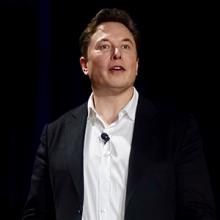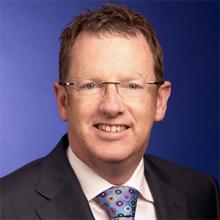Maximum Impact: How can family offices help to build a brighter future?
Earlier this year the world watched helplessly as oil streamed from one of BP's deep-sea wells into the Gulf of Mexico. The disaster highlighted several uncomfortable issues, not least the safety of drilling over a mile under the sea and the need to develop cleaner, greener energy sources.
Social responsibility in all its forms is consequently back on the agenda, but debate continues about how to achieve the greatest impact – investing into socially responsible companies and funds to drive through change or give back through philanthropy.
Scott Earthy is the CEO of a New York based single family office. He hopes the BP crisis will lead to a fundamental shift in how people view the resources that we have, but says diminishing the family wealth through risky investments serves neither a socially responsible investing (SRI) nor a philanthropic purpose.
"There has been a lot of attention paid to developing clean and green technology in recent years. The challenge for us is that all the technologies have moved so quickly, investing in them is very much akin to venture capital. And venture capital is a game where there are lots of losers and the occasional winner," he explains.
"Consequently, our investment strategy is based on more traditional classifications such as sector and geography. If we knew something was not compatible with SRI we would avoid it, but it can be difficult to limit or control for SRI within our constraints."
Instead, Earthy says the family attempts to positively impact the future through a separate pool of capital in a family foundation: "The family has decided it can effect more change in a more direct way by allocating money and grants through the foundation than through SRI."
The family's foundation primarily supports medical research in a variety of ways including building research labs, funding new university buildings, offering professorships and hiring clinicians. It also supports children's causes and other more specific causes championed by family members.
"We are seeing the younger generation pushing the foundation concept rather than SRI," he says. "Different generations have their own causes so the younger generation may be pushing the foundation in a slightly different direction, but that is how they are attempting to implement change as opposed to through investment."
One of the reasons the family Earthy represents has chosen philanthropy to make an impact is because it is more immediate and measurable. "The fact you have more control and more evidence of direct impact is appealing," he says. "You can look at a research lab and say 'If we hadn't participated that wouldn't be here.' That definitely feels good."
However, Adam Ognall, deputy chief executive of UKSIF, which promotes sustainable and responsible finance, believes it is a common misconception that SRI investments cannot also be financially lucrative.
"There are an increasing number of options that mean family offices can make money and make a difference. Taking into account social and environmental factors as well as financial factors when making an investment is certainly not a trade off. If an investment is not profitable then it probably should not be called an investment," he says.
Basil Demeroutis is a partner at Capricorn Investment Group, an independent management investment firm that invests capital on behalf of high net worth individuals, family offices and family foundations. It was formed in 2001 and has been involved in SRI and impact investing since its founding.
He argues taking an SRI approach will actually enhance your investment: "We are not a company who feels it needs to sacrifice value for values. We're actually looking to identify trends and leaders within those trends who are going to lead to superior performance in the long term. It ultimately leads to better investment decisions. That's what we're trying to deliver to our investors, better investment decisions."
Ognall agrees that looking at the socially responsible aspects of an investment can ensure that investment is sound, especially for those with a long-term outlook such as family offices.
He says: "There is a lot of media coverage at the moment about the problems around water supply and the price of grain. If you are a long-term investor and you are not asking the companies you are investing in, or the fund who is investing on your behalf, if they are taking into account the risks to their business caused by climate change or resource constraint, and how they are managing those risks, then perhaps you are missing a trick."
Earthy argues that when pursuing an investment opportunity his family office does not ignore socially responsible considerations; however, when they use funds and fund managers to access opportunities, it is sometimes out of their control.
"If we want to be in a China-based private equity fund, typically we give a lot of discretion to that manager to do deals across a wide range of industries. We don't encourage them to do things that aren't in compliance with SRI, but they might and it may be outside of our control," he explains.
However, Ognall says this does not have to be the case and that fund mangers should accept a certain level of responsibility. "It is not just about delegating to the fund managers but it is about making sure those fund managers are taking that ownership responsibility seriously on the family offices' behalf. It does not have to create more work for the family office, it requires that they ask the right questions of their fund manager," he says.
At Capricorn, Demeroutis says identifying key trends in the socially responsible space is crucial as it is determines whether an investment will succeed. But the process takes time and expertise.
"Decarbonisation of transport infrastructure is a trend we identified early on and identified a number of different ways to play it, such as investing in Tesla, an electric car start-up, in 2005."
But he cautions it is not enough to simply identify a trend – normal investment rules still apply. "An investment idea still comes from a bottom-up approach. We all agree that electric cars are a great idea but why have all the other ones, including strategies that have been controlled by the biggest companies in the world, failed?"
The answer could lie somewhere in the middle. Paul Robinson is chairman of Alquity, an investment management firm that developed alongside a foundation, One, which sells products such as water and condoms to fund like-for-like projects in developing countries.
From his work for the foundation, Robinson identified some potential investment opportunities in Africa. "Some markets out there are growing incredibly and I saw this as an opportunity to bring my fund management experience together with that from the foundation. So we created an African investment fund where investors get their full commercial return. Then we use a large percentage of our fees to fund microfinance projects and create jobs. The investors get to do some good but it doesn't affect their returns," he says.
Robinson and his team promise to donate a minimum of 25% of the fee revenues from the Alquity Africa Fund to the One Foundation without affecting the commercial return of the client. "For us we're changing lives but doing it through getting the very best returns. I want a client who is not interested in philanthropy to be just as happy with their investment as one that is," he says. However families choose to achieve the greatest impact, one thing is clear – the trend towards a more socially responsible future continues.
Earthy says that following the BP crisis, the move towards greener and renewable energy is a positive one, but he urges family offices to be practical. "Can you get the
double benefit of doing something good at the same time as earning a profit? Those things haven't always been easily compatible," he says.
"As it stands governments have been trying to subsidise cleaner alternatives such as wind and solar, but I don't think its really a sustainable strategy to provide huge subsidies over an extended period of time. Some of these alternative strategies have to stand on their own and be cost competitive," he says.
Instead, Ognall believes there is a real opportunity for family offices to step into the breach: "From our research we have found that family offices and high net worth individuals are driving a lot of sustainable investment currently. They are often far sighted from both a financial and ecological standpoint and so are in a good position to see the future trends and opportunities and take a leadership role within those."
As families question more often if their legacy should include being at the forefront of creating a more sustainable future, the conclusion many are coming to is that philanthropy and SRI are not mutually exclusive.
Socially responsible investment on the rise
Latest figures from the UK show that investors have returned to the SRI space after deserting it in 2009.
Ethical funds under management in the UK increased 22% to £5.6 billion in Q2 2010 compared to the same period last year.
Net retail sales were £98 million compared to outflows of £8 million last year.






